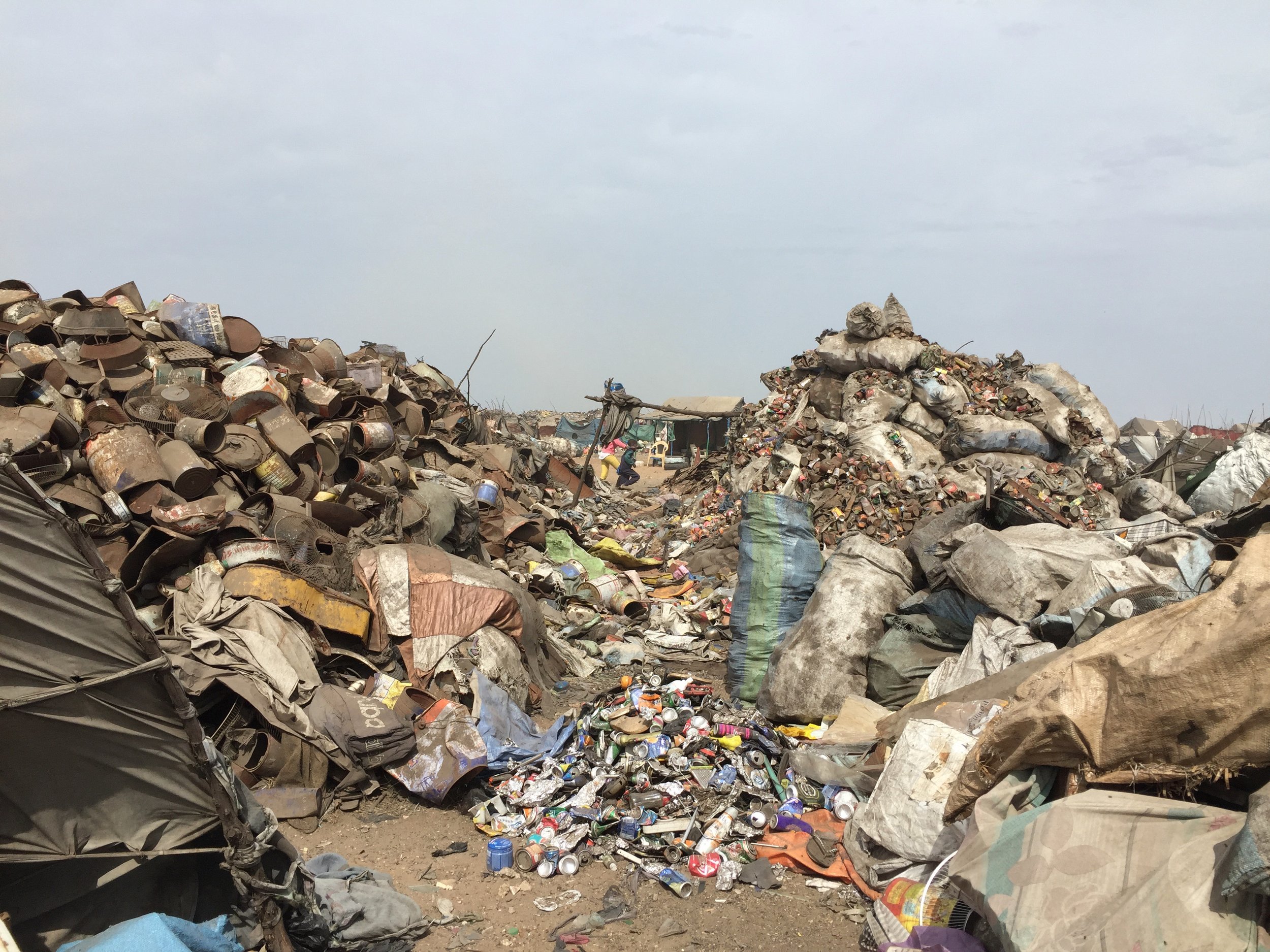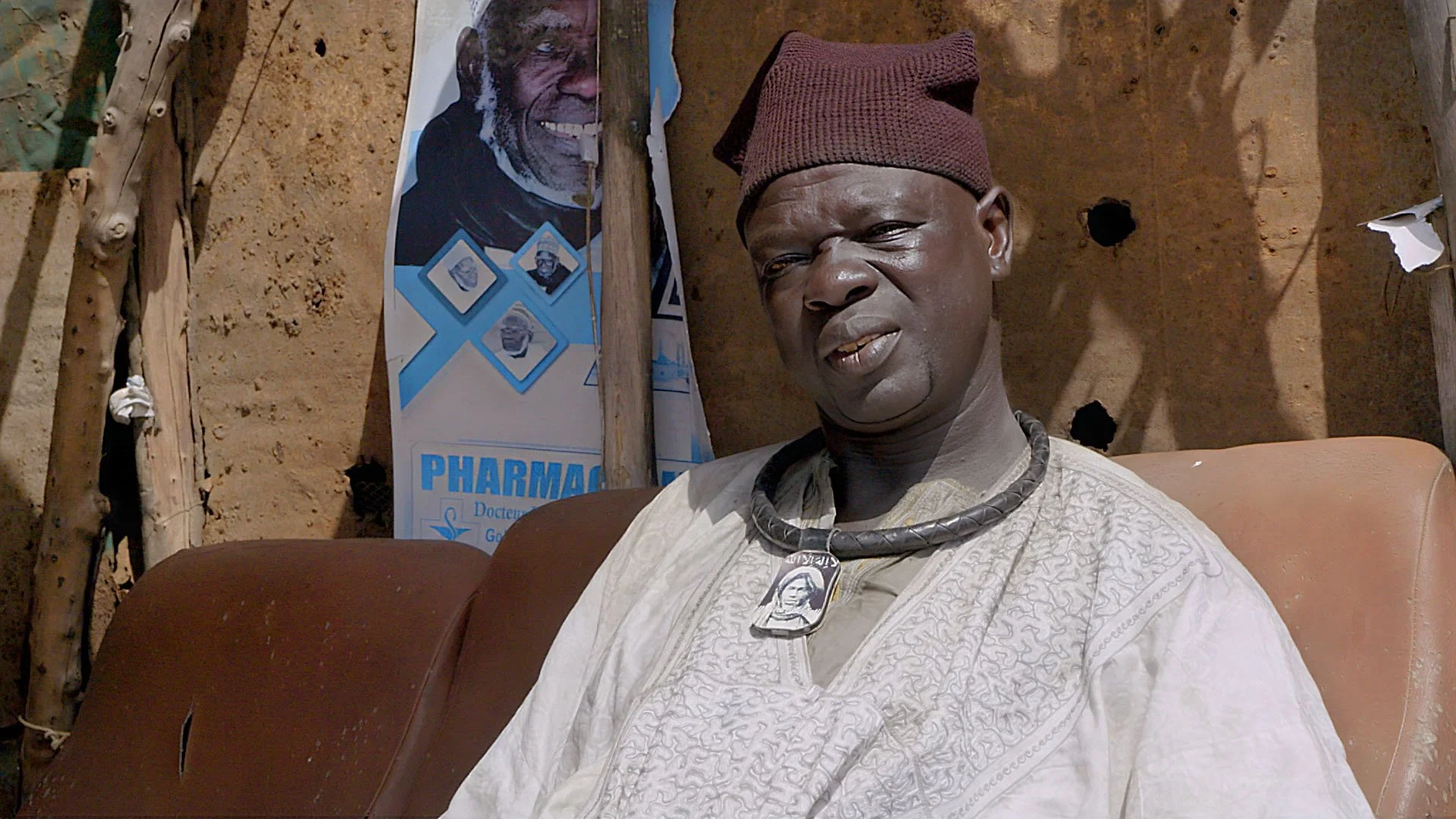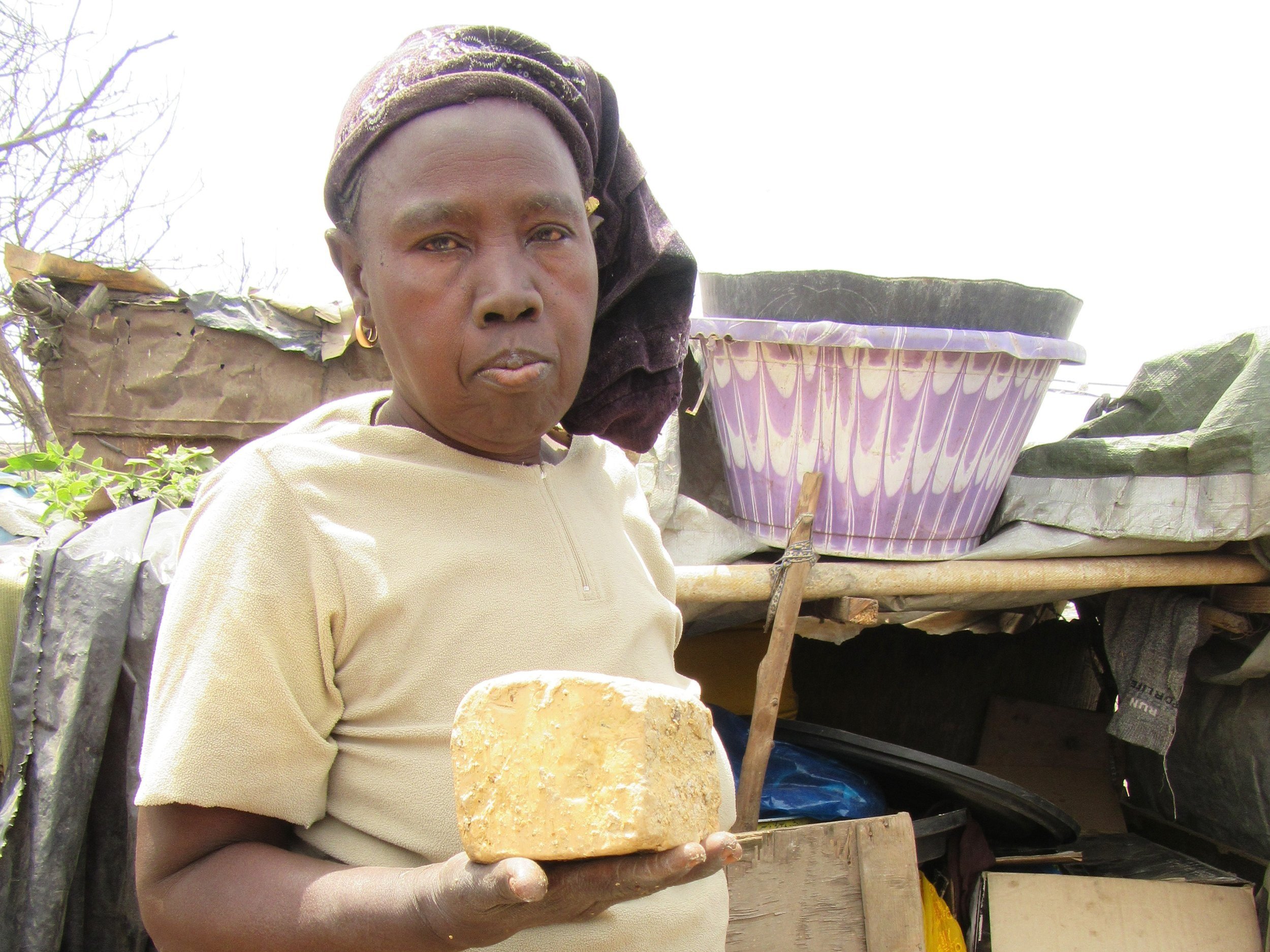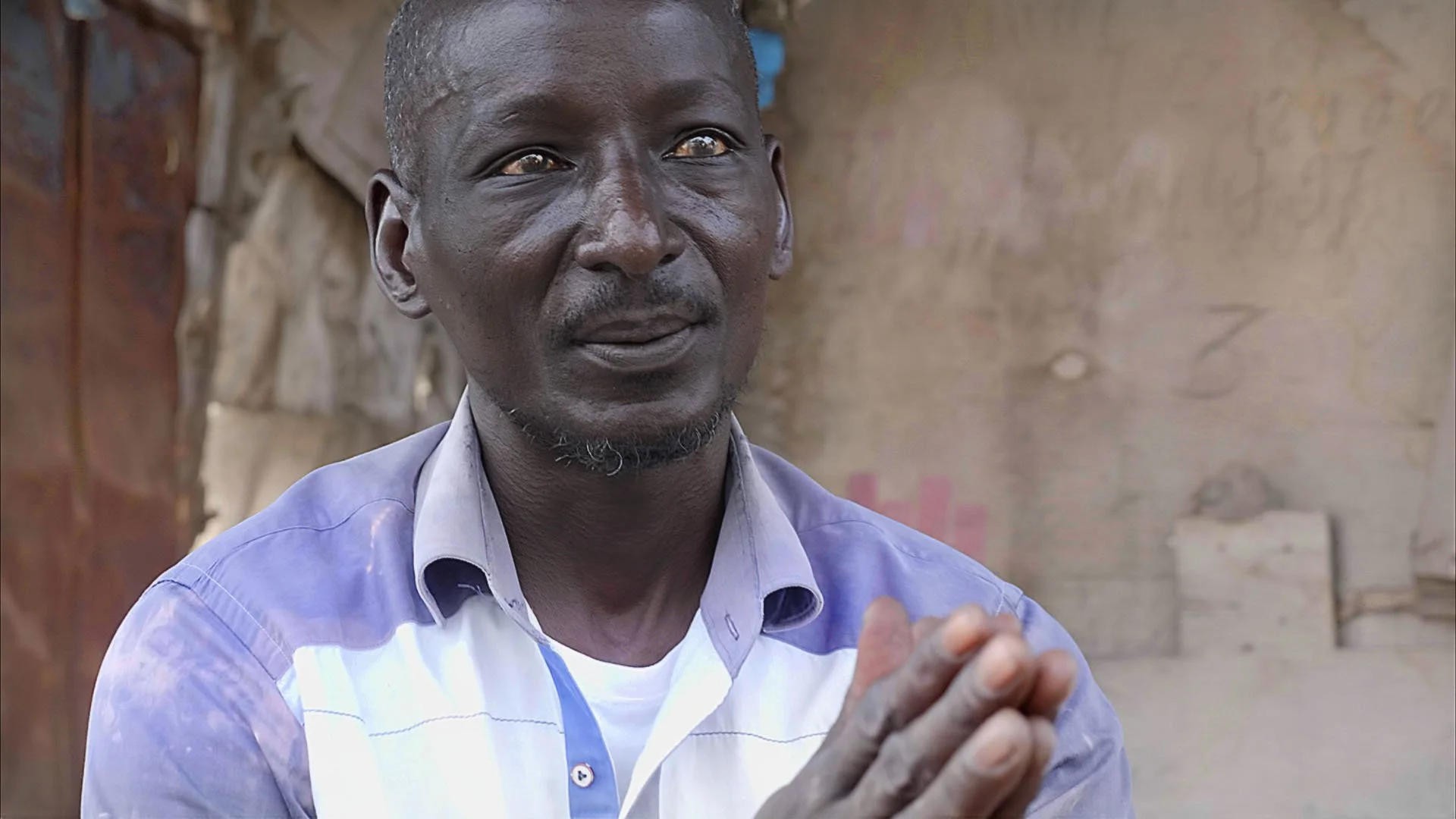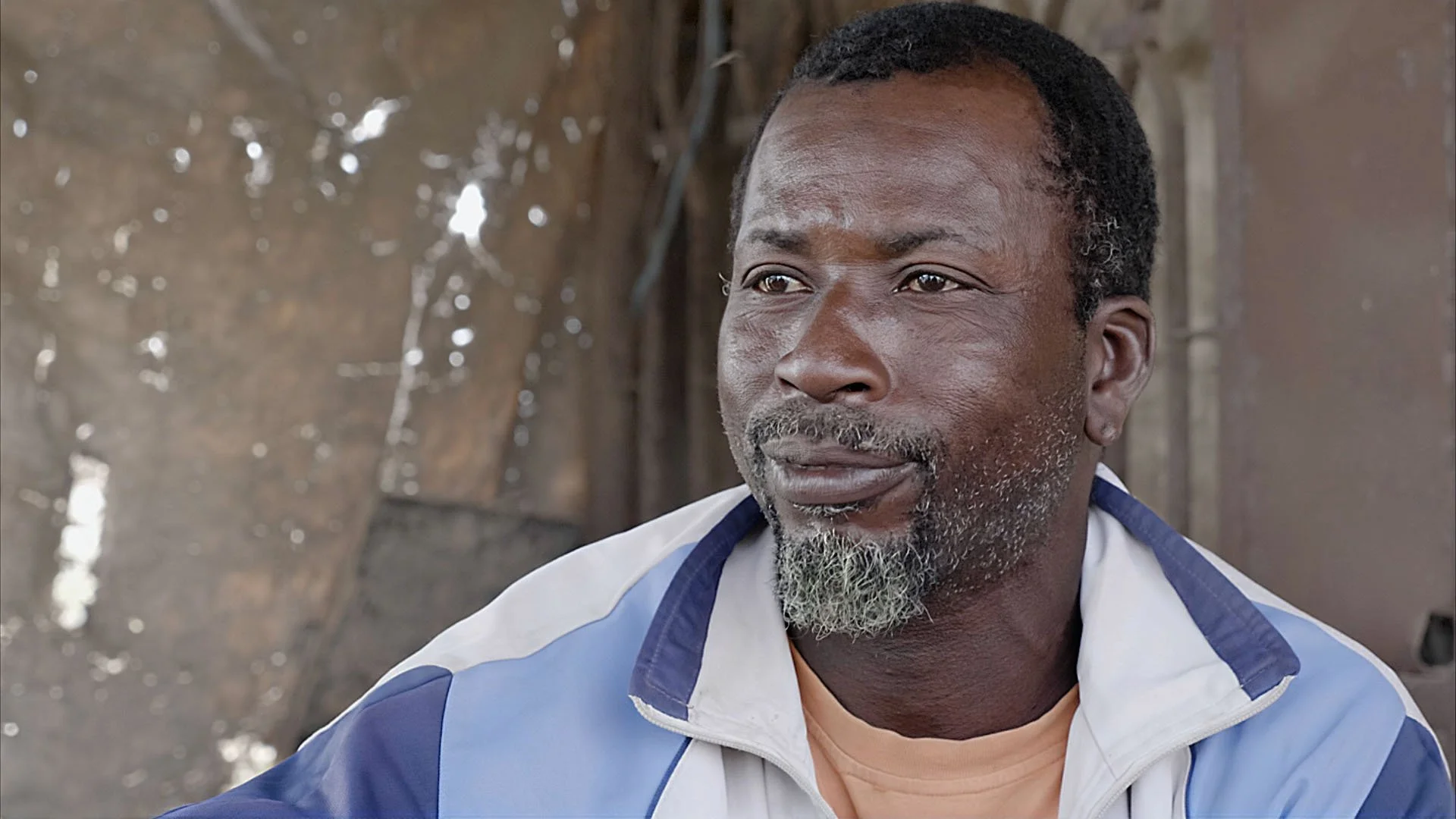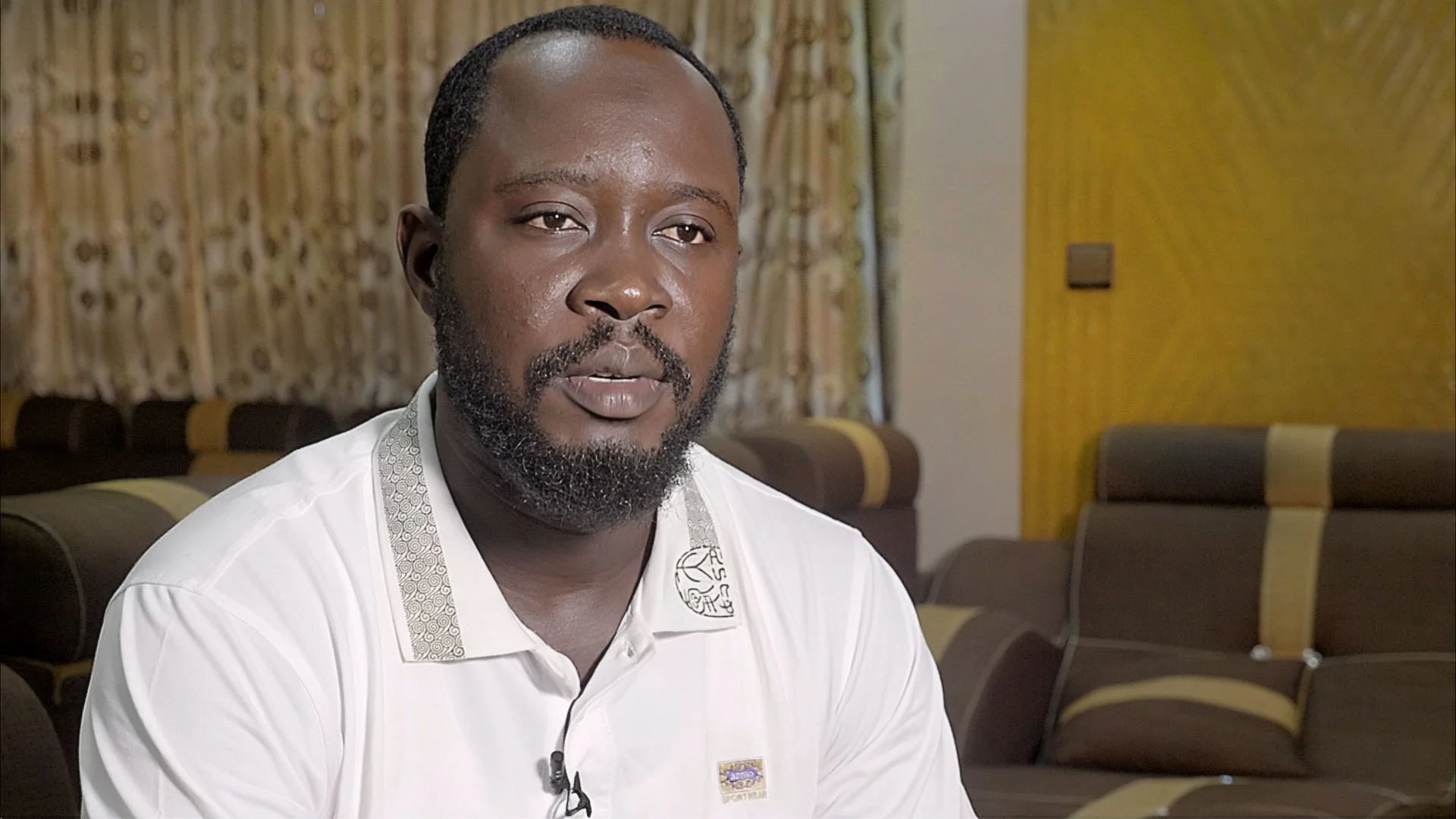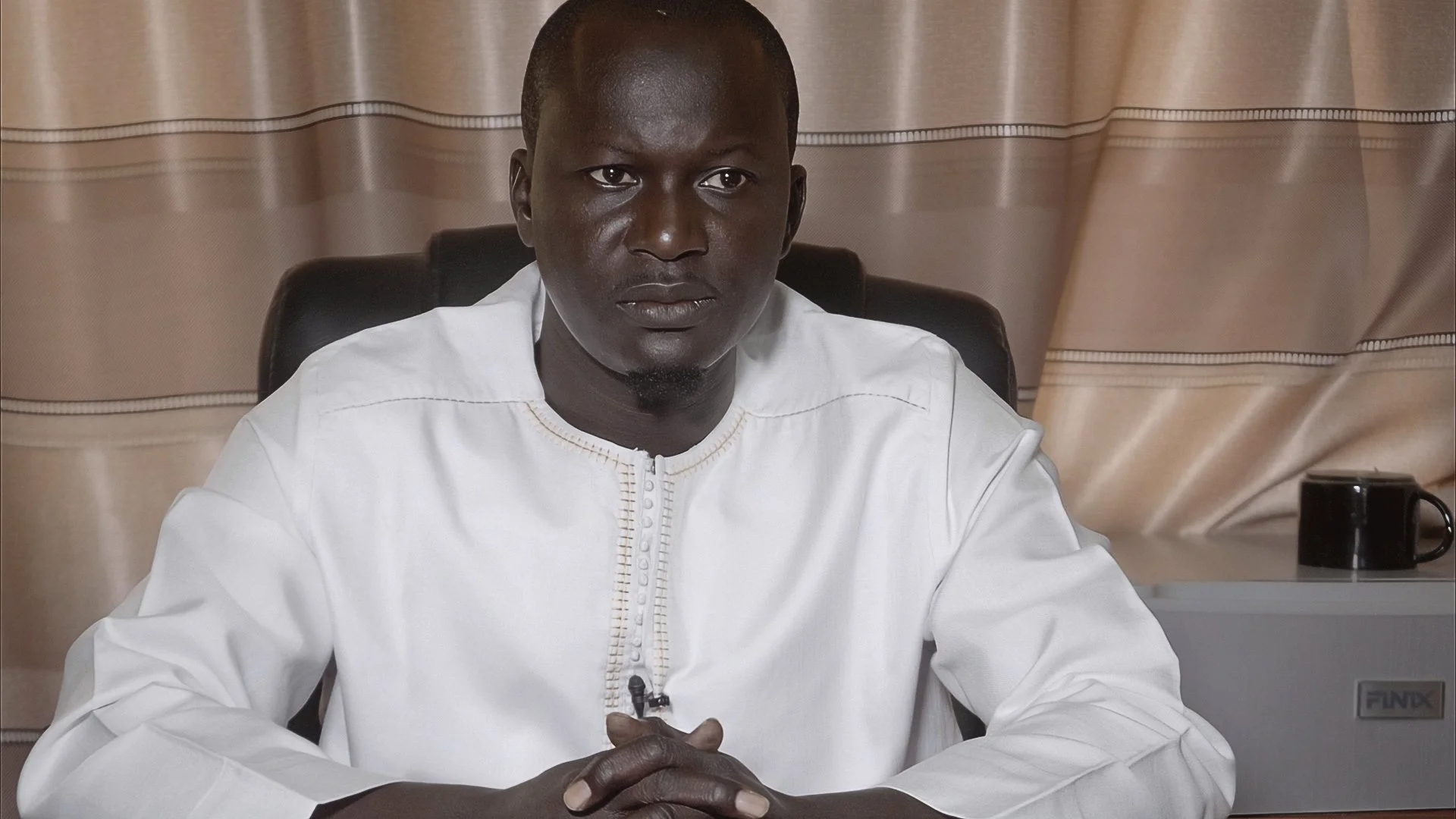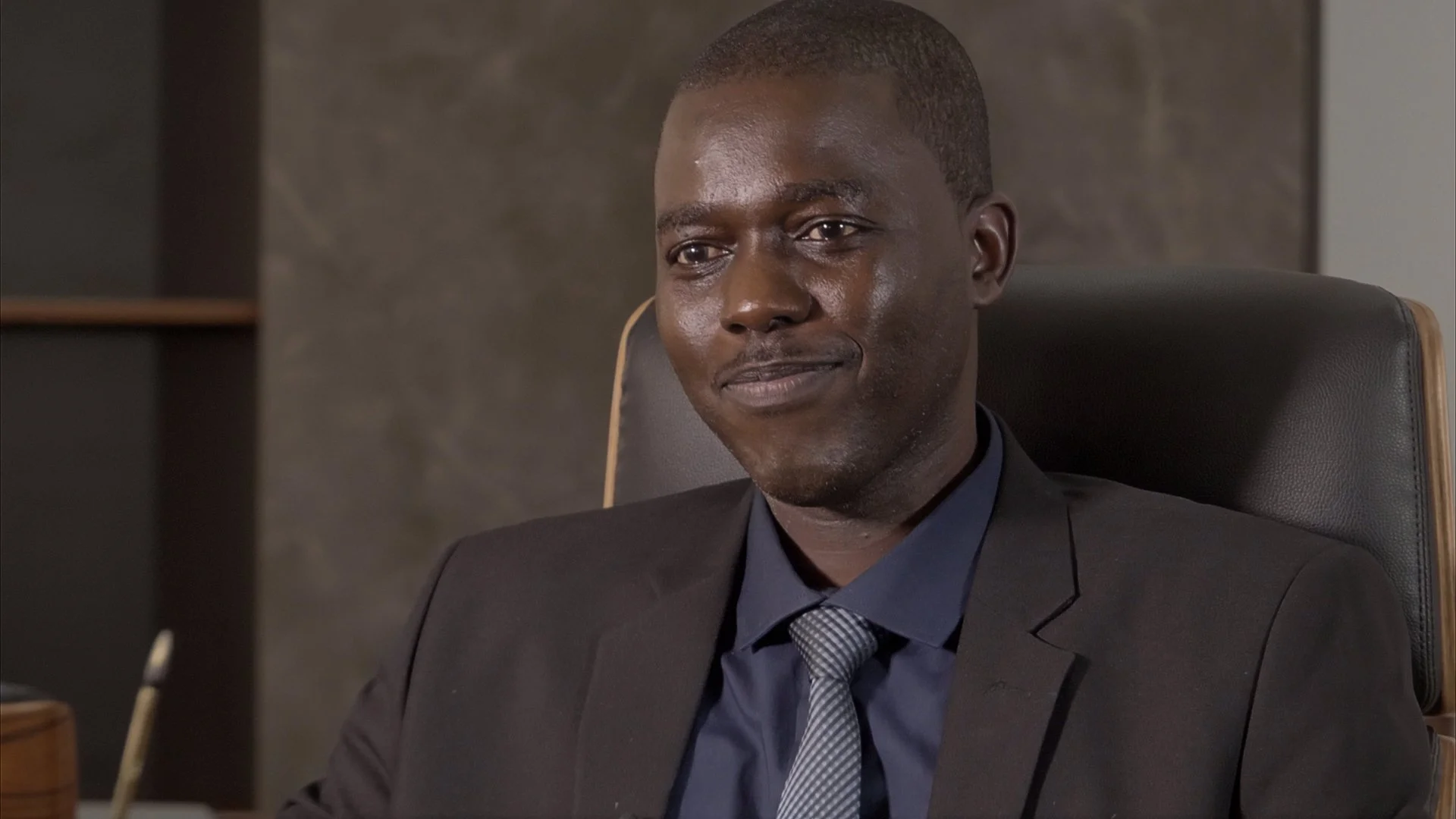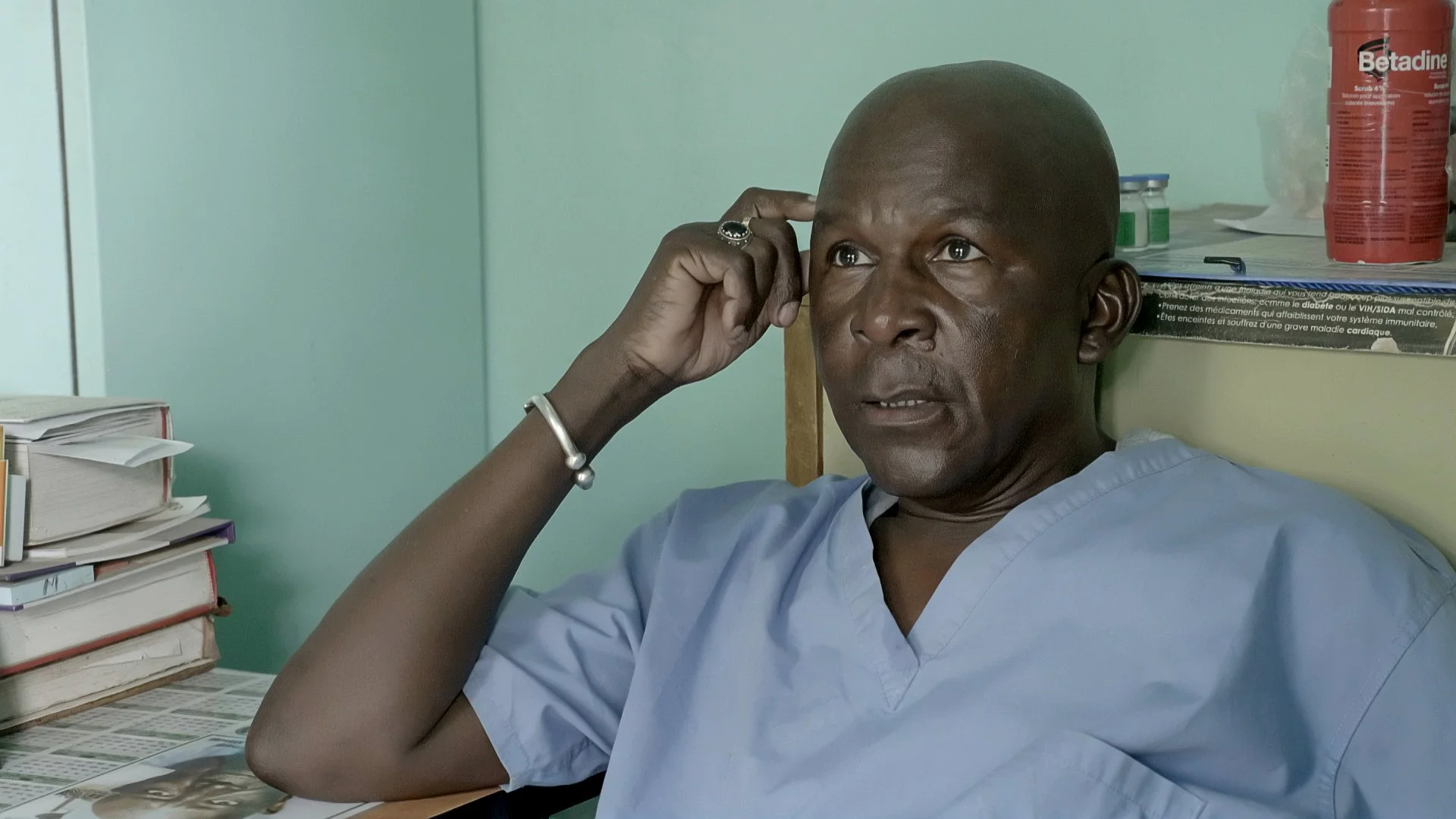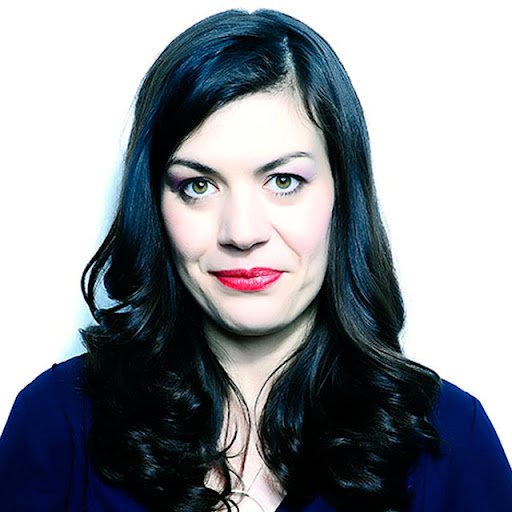

STORY
Enclosing open-air dumps and outlawing waste picking are key approaches to modernizing cities around the world. THE WASTE COMMONS explores the dramatic transformations involved in the impending closure of the city waste dump in Dakar, Senegal, and the lives that hang in the balance. It follows charismatic Zidane, trailblazing Adja, and their waste picker community, as they battle to defend their carefully crafted worlds and rights to waste.
Documentary Film (60 minutes)
Original Languages: Wolof, French
Subtitles: English, French
Version française : De l’ordure à l'or dur
TRAILER
SYNOPSIS
THE WASTE COMMONS reveals the intricate lifeworlds and recycling networks built by waste pickers since 1968 at Dakar’s dump, Mbeubeuss. Adja and Zidane, two waste pickers who are emerging as leaders contesting the erasure of their community, guide us through the dump’s material, social, and spiritual worlds. Adja is a divorced mother from Dakar specializing in plastics. Zidane, who hails from the country’s interior, supports his two families through sales of used shoes. They represent the central demographics at the dump– the urban poor rendered superfluous to the city’s growth engines and the rural poor fleeing collapsing agricultural economies bearing the brunt of climate change. Both are finding their voice in arguing for their rights to waste within the tense negotiations surrounding the future of their very way of life.
Following Adja, Zidane, and their waste picker colleagues across the colossal garbage mountain, the film zeros in on the forms of craft and expertise that have been honed over the last 55 years in the recycling of plastics, metal, food waste as well as smaller niches such as cardboard, shoes, and even baby dolls. It details the recycling economies that stretch from Mbeubeuss all the way to Asia and visits neighborhoods thriving on these second hand economies. Compelling interviews with waste pickers reveal what drove them to seek their fortunes out of other people’s detritus and how they resist stigma and confront the tectonic changes underway.
Special attention is paid to women waste pickers, for whom Mbeubeuss offers opportunities they may not otherwise enjoy. Coura details how she has taken care of her family over the last decades through plastic and metal recycling. We also focus on the minority Christian women from Southern Senegal who meticulously collect food waste to raise pigs that sustain a whole neighborhood bordering Mbeubeuss, and the particular vulnerabilities they face with the transformation of the dump. Through the course of the film, we see women rising as leaders of their local movement, becoming fearless activists for their cause on an international stage.
As we travel across the dump and beyond with these waste pickers, we see how, as Zidane puts it, “Mbeubeuss is a mirror of the city.” Far from a realm of chaos, the dump is an organized archive of Senegal’s postcolonial history and the waste pickers its careful archivists, cataloging, translating, and making valuable the afterlives of urban living. The film then dives into the politics of the dump closure and the waste pickers’ battle to assert their rights in the recycling economy moving forward. The rhetoric of State and World Bank officials in fancy office buildings is contrasted with waste picker strategy sessions hammered out in dusty shacks on top of the garbage mountain. Adja, Zidane, and their colleagues travel internationally to network with other waste pickers and contribute to discussions regarding the global plastics treaty. Along the way, they learn of inspiring battles that are being waged—and won—all over the world by waste pickers to defend their rights to the waste commons. The waste pickers of Mbeubeuss forge a worker’s cooperative that aims to protect their jobs and counter policies aimed at grabbing the value they have forged. They refine their proposal for a different future of Mbeubeuss that would honor their expertise, protect their bodies and communities from harm, and, rather than replace their labor with machines, scale up their embodied infrastructures of recycling.
In a tense standoff with the government in May 2023, hundreds of waste pickers mount a peaceful demonstration, blocking all garbage trucks from entering and leaving the dump, and thereby bringing waste management in the capital city to a standstill. Through capturing this pitched battle over the dump’s future, the film illuminates the centrality of recycling to the livelihoods of the urban poor in our era of breakneck consumption and the complexities of a just transition to a more sustainable and democratic future.
Will Dakar’s dump closure provide a model for how to integrate waste pickers into the modernization of the city or another catastrophic example of treating the poor as disposable?

“It’s garbage for ordinary men,
but it’s pure gold for us”
CONTEXT
It is estimated that 2% of urban residents in developing countries forge livelihoods through waste picking. As the chasm widens between the rich and the poor and the production of waste expands exponentially, the reliance of the global poor on recycling is intensifying. In the era of climate crisis, many of the world’s poor displaced by climate change find refuge in recycling economies, which also mitigate the negative effects of breakneck consumption. However, despite providing important environmental services, waste pickers are often treated as disposable.
Shuttering open air dumps is a key approach being taken across the global South by cities seeking to modernize urban infrastructure and clean up what are seen as antiquated, polluting spaces. Attempts to close these spaces are intensely fraught as waste pickers fight back for their rights to what they consider a waste commons. THE WASTE COMMONS explores the struggle over the controversial closure of Dakar’s Mbeubeuss waste dump as 2000 recyclers battle to assert the value of their work and retain rights to the city’s detritus. They join with a chorus of waste pickers across the world organizing for a just transition to a more and sustainable future.
THE WASTE COMMONS unfolds against two major historical dynamics. First, is the intense political unrest testing Senegalese democracy. Senegal has long been considered a beacon of democracy in a region bedeviled by instability but young Senegalese increasingly feel that their government serves the elites. In this light, the impending redevelopment of Dakar’s dump through a massive international loan appears to manifest the state’s elitist infrastructural agenda, with no consideration for the working poor.
Mbeubeuss has employed thousands for decades and is at the heart of a sophisticated recycling economy. The government claims that the upgrade project will provide a model of transformation—but many waste pickers feel that the project is steamrolling forward with no concern for their welfare. But they must tread carefully: recent deadly crackdowns on election protests have provided somber testimony to the stakes of protesting the state’s elitist development agenda.
At the same time, international negotiations surrounding a global plastics treaty are barreling ahead and a binding resolution to curb waste and reduce the impact of petroleum-derived plastics in climate change is being drafted. Given the serious implications of such a treaty for recycling, waste pickers from around the world– including Dakar– have seats at the negotiating table. They have been front and center in demanding that the transition to a post-petroleum economy is an just transition that safeguards their livelihoods.
CAST

“We work in garbage but we are not garbage”
FILMMAKERS’ STATEMENTS
I have been researching and writing about waste labor and urban social justice in Dakar, Senegal for 20 years. This film emerged out of conversations with waste pickers during ethnographic fieldwork on the dump starting in 2016 and their desire to share their stories with a larger world. Knowing that my academic texts were only reaching a limited audience, I entered the world of filmmaking to make the ethnographic research accessible to a wider world. The film is the product of my close collaboration with the Bokk Diom association of waste pickers and WIEGO, an advocacy organization that defends informal workers. It aims to directly impact the fate of Dakar waste pickers and raise awareness about reclaiming for policy-makers, academic audiences, and the public.
Although there are a growing number of films representing waste work across the world, no film has captured the plight of informal recycling communities caught in the crossfire of the closure of a major dump. The film serves as a pedagogical tool to illuminate the complexities of urban development and the increasing number of livelihoods centered on recycling. Questions at the heart of THE WASTE COMMONS are no less than environmental justice and urban citizenship as one of Africa’s most important democracies strives to modernize. It illuminates, in a powerfully intimate way, the stakes of a just transition to a post petroleum economy for large numbers of the global poor who survive through revaluing that which has been discarded.
Rosalind Fredericks
I am a New Zealand-born filmmaker, who has been making documentary films since establishing Alchemy Films in San Francisco in 1994. I began my career as an environmental and natural history filmmaker. By 1998, I directed a one-hour orangutan culture and conservation documentary that was pre-sold to National Geographic television and then was acquired by ARTE and Discovery, among others. Since moving to the UK in 2004, I have found a niche in social documentaries, partnering with university educators to bring documentary stories to wider audiences that originate from adventurous and rigorous fieldwork. For many years, I have told stories on subjects ranging from land rights and matters of care during the Ebola epidemic, many of which we filmed in West and East Africa. I am always excited by stories with social justice at the core. I have always worked with local crew and encouraged participatory filmmaking with participants. I jumped at the chance to be a part of telling a documentary story that sits at the intersection of environmental justice and workers’ rights. I am also captivated by the more-than-human aspects of the setting of the Mbeubeuss dump. I believe documentaries are a powerful and authentic storytelling tool to keep us aware and engaged in our collective journey into a globally uncertain future.
Sarita West

“Leave the waste in our hands”
TEAM
Rosalind Fredericks
Director/Producer/Writer
Rosalind (Rozy) is an urban geographer and Associate Professor at NYU’s Gallatin School of Individualized study, specializing in urban environmental social movements in West Africa. She has been working in Senegal for over 20 years conducting research on the politics of waste labor in Dakar. Her book Garbage Citizenship, which was awarded the Toyin Falola Book Award for the best book in African Studies, chronicled the municipal waste workers’ union as it battled for respect and improved working conditions in the wake of structural adjustment. She also edited two volumes with esteemed historian Mamadou Diouf on citizenship in African cities: Les arts de la citoyenneté au Sénégal: Espaces contestés et civilités urbaines (Editions Karthala, 2013) and The Arts of Citizenship in African Cities: Infrastructures and Spaces of Belonging (Palgrave MacMillan, 2014). Fredericks is the co-director of the Discard Studies Collaborative at NYU. The Waste Commons emerged out of her ethnographic research (supported by a major grant from the National Science Foundation) at Dakar’s dump since 2016 and her advocacy work with the association of Mbeubeuss waste pickers and the non-profit organization WIEGO that defends the rights of informal workers globally. It is her first documentary film.
Sarita West
Director/Producer/Writer/
Additional Editing
Sarita has been making natural history films and social documentaries for 27 years. Sarita established Alchemy Films in San Francisco in 1994. She wrote, directed and produced two award-winning 35mm short fiction films before making the orangutan documentary, The Disenchanted Forest (2004) for National Geographic Channels. Sarita co-produced the PBS documentary, The Split Horn (2003), and was an associate producer on the PBS documentary, The Real Dirt on Farmer John (2006). In London, Sarita produced, directed and edited Fire Burn Babylon (2010), Exiles and Outlaws (2014), and has produced short films for The Guardian and Barts N.H.S. Trust. Sarita shot, edited, directed and produced In The Shadow of Ebola (2015) for PBS/Independent Lens and The Land Beneath Our Feet (2016) for the University of Wisconsin, Madison. Sarita is post-producing Outspoken, a social justice rap documentary partially filmed in Senegal, Kenya and Liberia. In recent years Alchemy Films has sought stories that consider life in the Anthropocene.
Mamadou Dia
Producer
Mamadou is an award-winning Senegalese film director, screenwriter, and co-founder of the production company, Joyedidi. Often based on his life growing up in West Africa, Mr. Dia’s films explore the tension between fact and fiction, realism and abstraction. His short film, Samedi Cinema, opened at the Venice and Toronto International Film Festivals in 2016 and received numerous accolades. Baamum Nafi (Nafi’s Father), his first feature film, premiered in 2019, winning two Golden Leopards for “First Feature” and “Filmmakers of the Present” at the Locarno International Film Festival. It was selected for MOMA/Lincoln Center’s 2020 New Directors/New Films, the 2019 Toronto International Film Festival Talent Lab, and the 2018 Hubert Bals writing grant. Senegal chose Baamum Nafi as its Oscar entry for Best International Feature in 2021. Mamadou Dia received an MFA in Filmmaking from NYU’s Tisch School of the Arts in 2017 and is an Assistant Professor of Practice at the University of Virginia. He was recently awarded a 2023 Guggenheim Fellowship in the Film- Video category.
Maba Ba
Producer
Maba grew up in Senegal where very often he could be found telling and hearing stories around a couple of candles and entertaining his family members while waiting for the electricity to come back on. It was at that very young age that he started to appreciate the unlimited power of stories. After studying Computer Science at Old Dominion University, he moved to New York to continue education in 3D animation and Acting. He then immersed himself in the Film, Tech and 3D animation world. Maba is an actor, producer and director with titles such as WarGames (MGM), Christmas Wedding Baby (Netflix) and award winning shorts such as Samedi Cinema (TIFF, Venice), Men or Mice (Urbanworld) to name a few. He is a cofounder, with Mamadou Dia, of the JoyeDidi entertainment company.
Pierre LeCompte
Cinematographer
Pierre is a Senegalese cinematographer with over twenty five years of experience in the film industry. He worked as a cameraman before becoming a cinematographer working on fiction, documentaries, docu-dramas, feature films, and commercials in several countries with directors of various nationalities. He is best known for the television series C’est la Vie (2019-2020), the films Mbarane (2004) and Ngoyaan, le chant de la séduction (2004) and for the documentaries: L’eau Source de Vie (2000), Quitter le Pouvoir (2014), Juifs Noir, Les Racines de l’Olivier (2015), Si Loin du Vietnam (2016), and 50 ans de la Banque (2023).
Cheikh Ahmed Tidiane Sy
Cinematographer
A graduate of Cheikh Anta Diop University and the Media Center in Dakar, Cheikh is a Senegalese director, cinematographer, and independent video-journalist who has fifteen years of experience. His first film was a short documentary titled Silence, On Arrive (2005) deals with the fate of Mauritanian refugees in the Senegal River valley. Released in 2008, the second is about the manatees of the Nawel backwater, in Matam. Subsequently, he directed Mbeubeuss, the Gold Rush in 2011 which looks at people who live off the waste economy at the Mbeubeuss landfill. In 2020, he made the feature documentary Les Murs Du Savoir shot over 4 years with four portraits of students from the Cheikh Anta Diop University in Dakar.
Evelyn Franks
Editor
Evelyn is an award-winning editor specializing in long and short form documentary. She demonstrates sound editorial judgment and employs strong intuitive ability in structuring narrative, pace and tone. Leading edge technical skills across all major editing software packages. With over 18 years’ international experience, credits include: BBC 4, BBC 3, BBC World Service, CNN, Al Jazeera English, VICE, HBO and theatrical release. Skilled in international channel launches. Her subject specialities focus on history, current affairs, arts, music and observational documentary. Awards include Peabody, Lovie, Webby, Frontline Club, Broadcast Digital and Eutelsat, a Grierson nomination in 2017 and several Promax awards and nominations. Previously an Associate Editor to renowned Editor Walter Murch on the feature length documentary “COUP 53,” which premiered at the 2019 Telluride Film Festival.
Pape Armand Boye
Composer
Pape is a Senegalese musician and sound designer who runs La Boutique Studio, a premier professional recording studio in Dakar, Senegal. He is certified by the Berklee School of Music as a Sound Industry Professional. His academic concentration was in Music Production Analysis, Songwriting for Film and TV, Audio Post Prod for Film and TV and Film Scoring. Pape has worked as lead instructor for the undergraduate Audio Curriculum at SUPIMAX (Institut Supérieur des Arts et Metiers du Numérique) and has also taught Masterclasses for audio professionals in collaboration with SUPIMAX and Goethe Institut. Influenced by mbalax music, but also by folk, soul, blues and reggae, he has developed his own style of African acoustic music. With his brother Badou, he performed at an important antiapartheid festival in 1991 (along with Youssou N’Dour and Peter Gabriel), and at the Africa Fête Festival in 1993. Their first album in 1997, “Woyou Talibe,” was influential in promoting acoustic music to young African musicians. Since 2000, Pape works in Europe and North America as a studio musician but he also is a composer, arranger, producer, vocalist, bassist and guitarist. His music often addresses issues such as love, human suffering and political conflict. He sings in Wolof, French and English.
Ousmane Diouf Sané
Project Assistant/ Interpreter
Ousmane is a Senegalese researcher who received his Master’s degree in Sociology in 2006 at Université Cheikh Anta Diop in Dakar, then a second Master’s degree in Climate Change and Human Security as part of WASCAL in Lomé (Togo) in 2014, after having completed his English proficiency at the University of Cape Coast in Ghana in 2012. Since 2015, he works as as a research assistant in a structure called CADRE in Dakar, and also assists Professor Rosalind Fredericks of NYU, with whom he has worked since 2016. He has also worked as a freelance researcher in several projects, including a World Bank study on migration in Senegal and Gambia.
SCREENINGS
Cinefemfest (sneak preview), Dakar, Senegal (October 31-Nov. 3, 2024)
WOW Wales One World Festival, Aberystwyth, Wales
(March 21-24, 2025)
Ethnografilm Paris, Paris, France (April 17-20, 2025)
Vancouver Independent MovieMaker Awards, Vancouver, BC (April 30, 2025). WINNER BEST DOCUMENTARY FILM AWARD
Charlotte Black Film Festival, Charlotte, NC (June 5, 2025)
Nashville Independent Filmmakers Festival, Nashville, TN
(June 6, 2025) SEMI FINALIST
New York Independent Film Festival, New York, NY (June 3-8, 2025)
WINNER BEST DOCUMENTARY CINEMATOGRAPHY AWARD
The African Film Festival, Dallas, Texas (June 19, 2025)
New York International Women’s Festival, Online (July 7, 2025)
SEMI FINALIST
Indianapolis Independent Film Festival, Indianapolis, IN (August 5, 2025) SEMI FINALIST
Middlebury New Filmmakers Festival, Middlebury, VT (August 20, 2025)
African Diaspora Cinema Festival, Florence, Italy (September 3-6, 2025)
Calgarie Indie Film Festival, Calgarie, Canada (August 21, 2025)
SEMI FINALIST
Richmond International Film Festival, Richmond, VA (September 23-28, 2025) FINALIST
Palermo International Film Festival, Palermo, Italy (August 31, 2025) SEMI FINALIST
Society for Visual Anthropology Film and Media Conference, New Orleans, LA (November 19-22, 2025)
Kyoto Independent Film Festival, Kyoto, Japan,
(March 31, 2026) SEMI FINALIST
Festival
Screenings and Awards
Academic and
Advocacy Screenings
New York University, Discards Studies Film Festival (sneak preview), Gallatin School (April 26, 2024)
College of Charleston, African Studies Program
(October 17, 2024)
International Alliance for Waste Pickers and WIEGO webinar (November 7, 2024)
New York University, Department of History
(December 11, 2024)
Institut Français Leopold Sedar Senghor, Dakar, Senegal
(February 19, 2025)
Columbia University, Ethnographies of Work workshop
(March 27, 2025)
Northeastern Anthropological Association (NEAA), Bridgewater, MA (April 4-5, 2025)
New York University, Florence, Italy
(April 28, 2025)
Centre Culturel Blaise Senghor, Dakar, Senegal (July 2, 2025)
Sure We Can, Brooklyn, NY (July 9, 2025)
World Issues Forum, Western Washington University, Bellingham, WA
(October 1, 2025)
Program of African Studies, Northwestern University, Chicago, IL
(October 16, 2025)
African Studies Association Annual Meeting, Atlanta, GA
(November 20-22, 2025)
Department of Geography and Environment, London School of Economics, London, UK (November 25, 2025)
REASOPO en partenariat avec l’African Program de Sciences Po, Paris, France (December 11, 2025)
Anthro Day, Chiaroscuri e altre storie’ Association, Auditorium of the Civic Library, Via Gotifredo da Bussero 1, Milan, Italy (February 29, 2026)
Association of American Geographers conference, San Francisco, CA (March, 2026)
MORE INFORMATION
Email:
Social Media:
Scholarship:
Recent Press:
Seneweb
July 3, 2025
Fighting for the Waste Commons
Africa is a Country
June 2, 2025
Waste pickers in Dakar face catastrophic evictions
International Alliance of Waste Pickers
March 1, 2025
DE L’ORDURE À L’OR DUR :
Un film plaidoyer qui démystifie les récupérateurs de Mbeubeuss
LiiQuotidien
February 20, 2025
Le Journal De 20h (coverage starting at 14:20 mins)
WalFadjri TV
February 19, 2025
Waste Pickers are Not Disposable
NYU News
April 15, 2024




